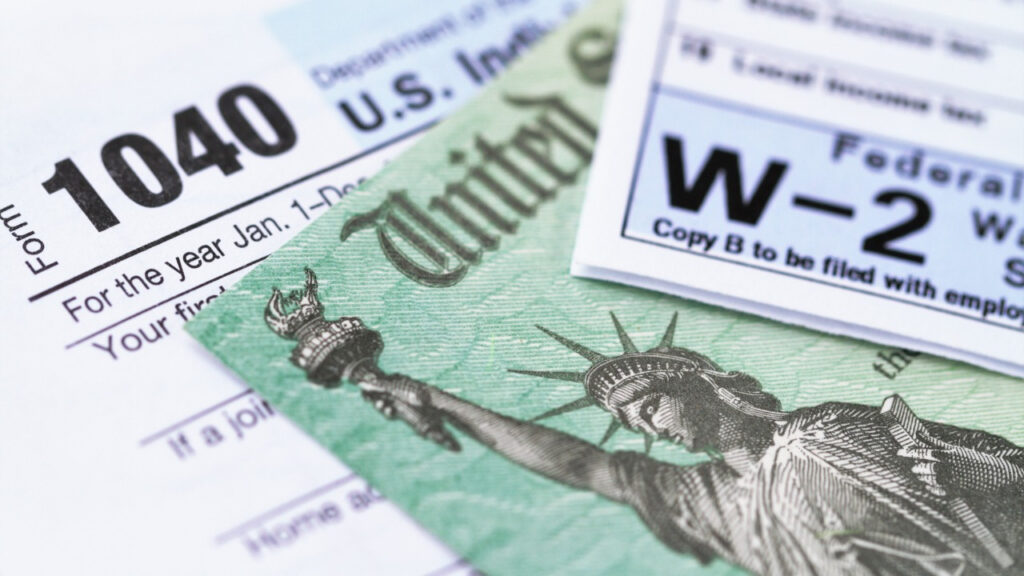
Getting Started:
Tax season can be a stressful time, but with proper preparation, you can make the process much smoother. Here are some essential tips you should follow every year to prepare to tax season:
- Mark Your Calendar
First and foremost, the last day to file taxes for individual federal income tax returns is usually April 15, unless this falls on a Saturday, Sunday, or official holiday (even state-level holidays can extend the tax deadline). You can request a six-month extension by filing Form 4868, making your last day to file individual income taxes October 15, or the next business day if this is a weekend or holiday.
- Stay Organized
Next, keep all your tax documents and receipts organized throughout the year. This will make the filing process much easier and help you avoid missing any important information.
- Verify Personal Information
Additionally, ensure your personal information is up to date with the IRS and Social Security Administration. This includes your name, address, and Social Security number. If you’ve had any changes, such as a move or name change, update these details to avoid any issues.
- Adjust Your Withholding
Use the IRS withholding estimator to ensure the correct amount is being deducted from your paycheck. This can help you avoid owing money or receiving a large refund, which means you’ve essentially given the government an interest-free loan.
- Stay Informed About Tax Law Changes
Tax laws can change from year to year. Stay informed about any changes that might affect your tax return. The IRS website is a good resource for updates and information.
- Maximize Retirement Contributions
Finally, contributing to retirement accounts like IRAs can reduce your taxable income. Make sure to maximize your contributions by the tax deadline to take full advantage of these benefits.
Time to File!
Now that you are fully prepared, it is time to file your taxes. Below are some tips to keep in mind when filing:
- Seek Help if Needed
If you have any questions or need assistance, don’t hesitate to seek help. The IRS offers various resources, and tax professionals can provide guidance tailored to your specific situation. For more complicated tax situations, it is best to consult a tax professional. Pro tip: if you’re using TurboTax, you can google almost any tax question + TurboTax, and there will be a TurboTax article for that specific topic. This will help you avoid having to call TurboTax directly and waiting in a queue.
- Gather Important Documents
Next, collect all necessary documents before you start filing. This includes:
- W-2s from employers
- 1099 forms for additional income (e.g., freelance work, interest, dividends)
- 1098 forms for mortgage interest
- Receipts for deductible expenses
- Last year’s tax return for reference
- Understand Your Filing Status
Additionally, your filing status determines your tax rates, standard deductions, and eligibility for certain credits. The IRS has five main filing statuses:
- Single
- Head of household
- Married filing jointly
- Married filing separately
- Qualifying widow/widower with dependent child
Make sure you know which status applies to you, as it can significantly impact your tax return.
- Choose a Filing Method
Moreover, decide whether you will file your taxes yourself or use a professional. Filing yourself can save money, but a professional can provide expertise and potentially find additional deductions or credits.
- Plan Ahead for Payments
Finally, if you owe taxes, plan how you will pay them. The IRS offers various payment options, including installment plans. Make sure you understand these options and choose the one that best fits your financial situation.
By following these steps, you can reduce stress and ensure you’re well-prepared for tax season. Happy filing!
iPlan and their respective employees, representatives, and/or insurance agents do not provide tax, accounting, or legal advice. Please consult an independent professional as to any tax, accounting, or legal statements made herein.
The information provided is subject to change based on tax regulation. Please check with your tax professional before making any investment decisions.
For educational purposes only. Please consult your individual tax professional for planning and tax considerations. This document should not be construed or relied upon as tax planning advice.











